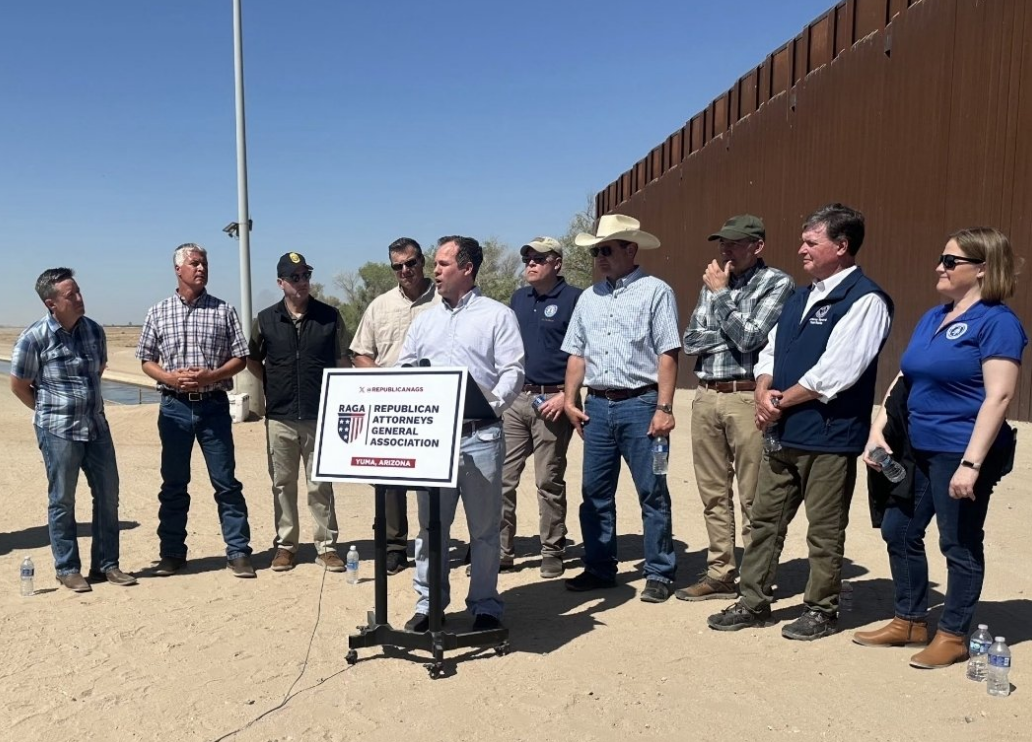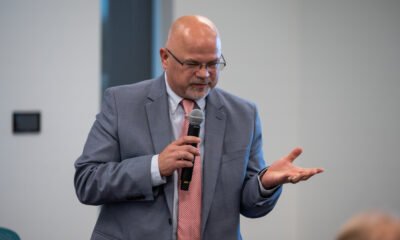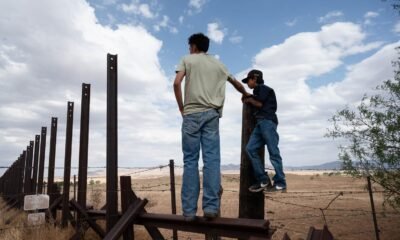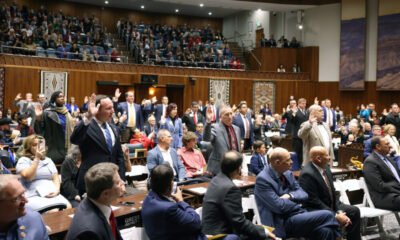border
Senate President Heads Key Delegation to Southern Border

By Jonathan Eberle |
Arizona Senate President Warren Petersen recently spearheaded a visit to the U.S.-Mexico border, accompanied by nearly a dozen state attorneys general and local law enforcement officials. The delegation aimed to assess conditions and observe federal immigration enforcement changes firsthand.
This bipartisan group included attorneys general from states like Indiana, Mississippi, and South Dakota. Their engagements featured discussions with local police, government leaders, medical professionals, and nonprofit organizations, providing a comprehensive view of the current border landscape.
Petersen reported a notable decline in migrant crossings, with some areas recording fewer than five per day. This sharp reduction contrasts with previous years, where thousands crossed daily. Officials attributed this shift to reinstated strict immigration enforcement policies and increased prosecutions by the U.S. Department of Justice.
“For the first time in recent history, most Americans say the country is on the right track,” said Petersen. He emphasized that the change did not require new legislation, arguing that it was a matter of enforcing existing laws.
The visit underscored the Arizona Legislature’s commitment to enhanced federal enforcement at the border. Petersen highlighted ongoing efforts to tackle cross-border crime and ensure public safety.
Other officials echoed these sentiments, noting improved morale among border agents and the positive effects of reduced immigration on state services. Utah Attorney General Derek Brown connected the border situation to the fentanyl crisis, attributing many overdose deaths in his state to this trafficking. Mississippi Attorney General Lynn Fitch praised her office’s collaboration with ICE through the 287(g) program, deeming Trump-era policies vital for restoring border integrity.
South Dakota Attorney General Marty Jackley and South Carolina Attorney General Alan Wilson stressed the criminal elements of illegal immigration. Wilson criticized the previous administration’s policies as “reckless,” asserting that every state has a stake in border security.
Local law enforcement efforts also played a significant role during the visit. Yavapai County Sheriff David Rhodes characterized the tour as an educational resource for law enforcement nationwide, addressing the challenges of human and drug smuggling.
Yuma County Sheriff Leon Wilmot and County Supervisor Jonathan Lines, who hosted the delegation, expressed their appreciation for renewed national support. Lines stated, “We are grateful to again have officials in the White House who understand our plight. Together, we are making a difference for residents of the border communities.”

















